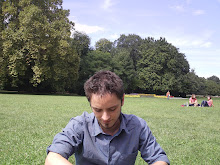HENRIK IBSEN, An Enemy of the People (1999) Ed. Oxford University Press, Col. Oxford World's Classics, ISBN 0-19-283943-8
"MR. STOCKMANN: Who are the people that make up the biggest proportion of the population – the intelligent ones or the fools? I think we can agree it's the fools, no matter where we go in this world, it's the fools that form the overwhelming majority." (Act four)
 An Enemy of the People (En folkefiende) is one of the most important and famous theatre plays by Henrik Ibsen. Written in response to the public reaction against his previous play, Ghosts -which was considered scandalous for the time-, Ibsen wanted with this play to show the irrationality of the masses, how easy it is to manipulate them by demagogic leaders, as well as to question the validity of the principles of liberal democracy.
An Enemy of the People (En folkefiende) is one of the most important and famous theatre plays by Henrik Ibsen. Written in response to the public reaction against his previous play, Ghosts -which was considered scandalous for the time-, Ibsen wanted with this play to show the irrationality of the masses, how easy it is to manipulate them by demagogic leaders, as well as to question the validity of the principles of liberal democracy.The play takes place in a small coastal town in southern Norway, and it tells the story of a doctor, Mr. Stockmann, who works in a public bath, the town's main source of income. He suddenly discovers that the baths are connected with a cesspool and the water contains rotten organic matter, so it is dangerous for health. The other main characters are his brother, Mayor of the town, director of the baths, and who will act as a public leader against the doctor, hiding the truth and lying to the people in order not to lose his power and economic interests; the doctor's wife, who will try to persuade Mr. Stockmann not to attack the Mayor; and the people from the Herald, a “progressive and independent” newspaper, which will represent the hypocrisy and the interested changing of minds. They will support the doctor, or threaten him, depending on the publicity and the political and economic interests of the newspaper.
 After the discovery, everybody seems to be supporting the doctor, including the people from the Herald, the Ratepayers' association, and the doctor's father-in-law. But as soon as they realise that doing the necessary repairs require loads of money and the closing of the baths for two years, they start trying to change the doctor's mind. He decides to continue telling the truth, and he ends alone.
After the discovery, everybody seems to be supporting the doctor, including the people from the Herald, the Ratepayers' association, and the doctor's father-in-law. But as soon as they realise that doing the necessary repairs require loads of money and the closing of the baths for two years, they start trying to change the doctor's mind. He decides to continue telling the truth, and he ends alone.Then, he decides to give a public speech showing the situation in its true colours. He sets out that the town's main problem is that it is built on lies. As he says, the people, the mass, cannot rule because they are easily led by self-advancing demagogues, by headers, and it is the individuals, the minorities, who dare tell the truth and can go further. This is a piece of the speech:
"MR. STOCKMANN: If there's anything I can't stand at any price – it's headers! I've just about had enough of them. They are just like a lot of goats in a young forest – there's damage everywhere they go." (Act four)
The reaction of the people is the expected: all the people gets angry with him, and start calling him “the enemy of people”. People decide not to talk to him any more; even his friends don't dare telling him anything or helping him. He finally concludes what can be considered the most important sentence of the whole play, which is “The strongest man in the world is the man who stands alone”.
For its perfect transmission of ideas, as well as for the well-written speeches and monologues of Dr. Stockmann, this play is part of the best modern Norwegian literature, giving a model of social realism plays, which will be imitated by authors all over Europe, for example by the Catalan Joan Puig i Ferreter, and his play Aigües Encantades. Therefore, I would strongly recommend to read this fantastic play to anybody who likes freedom, free-thinking, who is open-minded and knows the value of the truth.
For its perfect transmission of ideas, as well as for the well-written speeches and monologues of Dr. Stockmann, this play is part of the best modern Norwegian literature, giving a model of social realism plays, which will be imitated by authors all over Europe, for example by the Catalan Joan Puig i Ferreter, and his play Aigües Encantades. Therefore, I would strongly recommend to read this fantastic play to anybody who likes freedom, free-thinking, who is open-minded and knows the value of the truth.






2 comentaris:
Sembla força interessant la obra ja hi faré un cop d'ull quan tingui temps. El problema es que la massificació, amb la seva suprema ignorància es va contagiant i són un pes mort que impedeix a la humanitat avançar. I el pitjor de tot es que son persuasibles sempre pels arguments mes banals i que unicament apelen al seu benestar i mai a la realitat o allò, que amb esforç, podria contribuir a fer-nos millor a tots.
Per cert gossot, parlant de Teatre...que et sembla si anem a veure Marat-Sade?
Tenim fins al 27 d'aquest mes :)
Publica un comentari a l'entrada